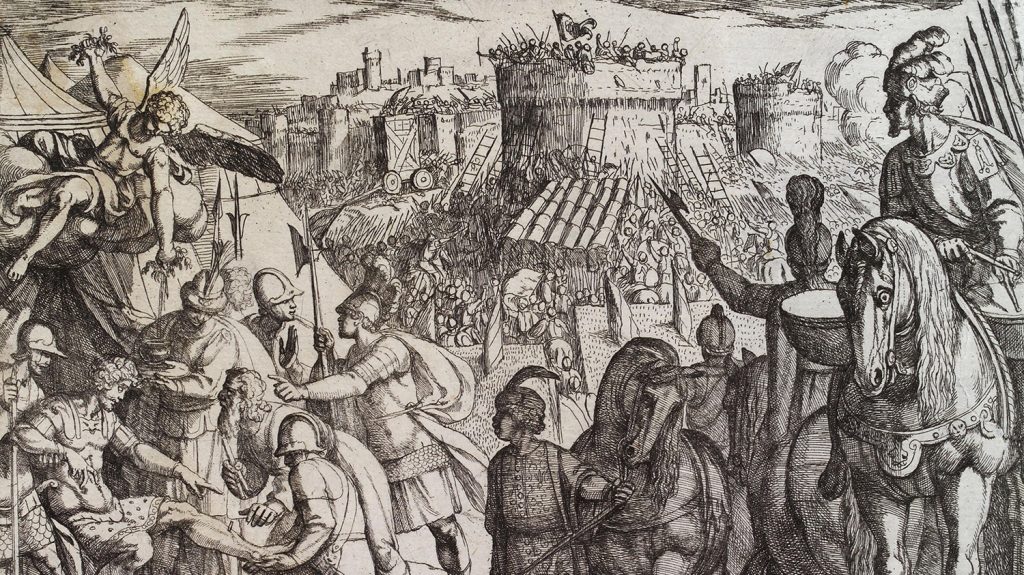Pope Urban II instigated the First Crusade (above) today in 1095. Preaching in a field outside Clermont, France – the crowd which gathered to hear him was too big to fit inside the cathedral – he called for a holy war to deliver Palestine from the Muslim Seljuk Turks. He promised that anyone who died on crusade would have all their sins forgiven. During his sermon, Urban coined the battle cry of the crusade, Deus vult! – ‘God wills it!’
‘Let this then be your war-cry in combats, because this word is given to you by God. When an armed attack is made upon the enemy, let this one cry be raised by all the soldiers of God: It is the will of God! It is the will of God!’ Pope Urban II, as reported by Robert the Monk
Pope Paul VI was almost assassinated today in 1970 as he arrived by plane in Manila, on a visit to the Philippines. His assailant was Benjamín Mendoza y Amor Flores, a Bolivian surrealist painter, who disguised himself as a priest, holding a crucifix. He stabbed the Pope twice in the neck with a short dagger, but Archbishop Pasquale Macchi blocked the attack, and a second Archbishop helped him subdue Mendoza. The Pope continued with his planned visit.
In Frankfurt, Germany, tonight in 1896, the German composer Richard Strauss conducted the first performance of his new work, Also Sprach Zarathustra. Based on the philosophical novel of the same name by Friedrich Nietzsche, which included Nietzsche’s famous quote, ‘God is dead’, the dramatic opening bars of Strauss’s work became the theme music in Stanley Kubrick’s film 2001: A Space Odyssey, released in 1968.
Today in 1710 was the birthday of Robert Rowth, who went on to become a Church of England bishop. Rowth was one of the first biblical scholars in modern times to notice that the Psalms were poetry. Before his time, the King James Version had translated them as blocks of prose.
It is the feast day of St Jakobus Intercisus (St James Cut-to-Pieces). To persuade him to become apostate, the Persians hung him from a beam and cut off 27 bits of him, the last bit being his head, in the year 421.
Image: Wellcome Collection / CC BY 4.0
